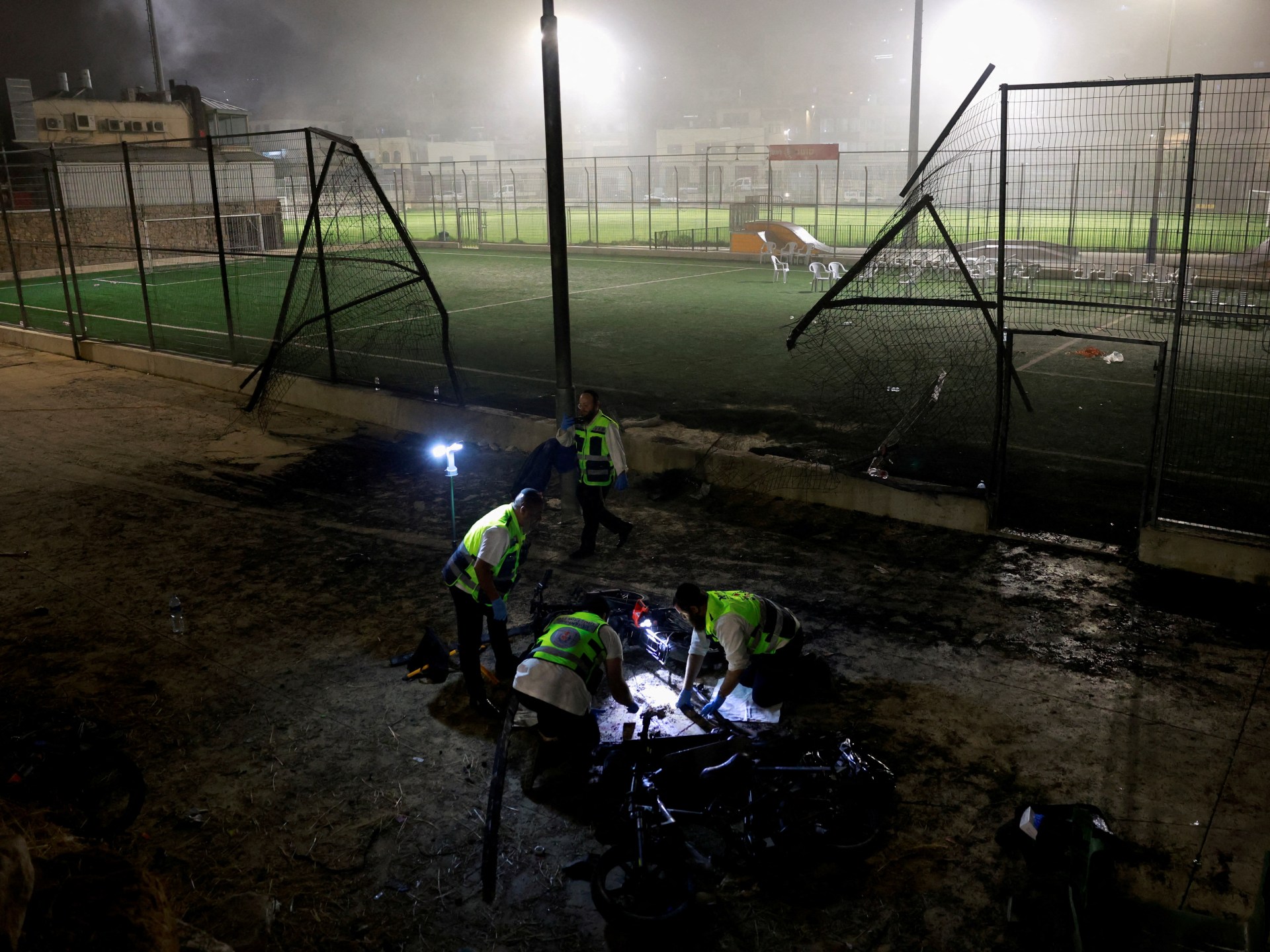Israel says Hezbollah has crossed ‘red line’, blaming the Lebanese group for Saturday’s deadly attack; Hezbollah denies the accusations.
The Israeli military says it carried out a series of strikes across Lebanon after blaming Hezbollah for Saturday’s deadly attack in the occupied Golan Heights, as its Ministry of Foreign Affairs said the Lebanese group had crossed a “red line”, raising fears of regional escalation.
The ministry on Sunday blamed the Lebanese group for the rocket attack on a football ground that killed 12 people.
“Saturday’s massacre constitutes the crossing of all red lines by Hezbollah. This is not an army fighting another army, rather it is a terrorist organisation deliberately shooting at civilians,” the ministry said in a statement.
Meanwhile, the Israeli military said its jets bombed weapons depots and infrastructure belonging to Hezbollah in Bekaa Valley in eastern Lebanon, in Shabriha and Burj el-Shemali near the southern city of Tyre, and the villages of Kafr Lila or Kfar Kila, Rab el-Thalathine, Khiam and Tayr Harfa.
Hezbollah has “categorically denied” responsibility for the attack. There have been unconfirmed claims that a failed Israeli interceptor missile may have caused the incident.
Iran, Hezbollah’s regional ally, warned Israel against any “new adventure concerning Lebanon” using the Majdal Shams incident as an “excuse”.
“After 10 months of mass killing in the Gaza Strip and mass murder of Palestinian children and women, the apartheid Israeli regime is trying to distract public opinion and global attention from its wide-ranging crimes in Palestine using a fabricated scenario,” Iranian Ministry of Foreign Affairs spokesman Nasser Kanaani said in a statement on Sunday, adding that Israel will be responsible for any moves that will further destabilise the region.
‘Tipping point’
Reporting from Beirut in Lebanon, Al Jazeera’s Zeina Khodr said the latest Israeli attacks were a message to Hezbollah, not the response it has promised.
“What we witnessed overnight was really normal activity, something that we have seen in the past 10 months since Hezbollah opened up a front in southern Lebanon to help the people of Gaza,” she said.
According to Khodr, the Israeli response and whether it would hit military or civilian targets could signal a “tipping point” that will determine the trajectory of the border conflict that started on October 8.
The Israeli security cabinet is expected to have a meeting later on Sunday to decide on a response to the rocket attack in Majdal Shams.
Israeli commanders meet Druze leaders
In a video message from the site of the attack on Sunday morning, Israeli military chief Herzi Halevi reiterated the claim that an Iranian-made Falaq rocket – which has been employed by Hezbollah since the start of border fighting last October – carrying 53kg (116 pounds) warhead hit the football field.
“This is a Hezbollah rocket. And whoever fires such a rocket into an urban area wants to kill civilians, wants to kill children,” he said.
Halevi added that the Israeli military is “increasing our readiness for the next stage of fighting in the north” as it keeps attacking the Gaza Strip to deadly effect.
He and other commanders met Druze leaders and community members in the area.
The United Nations, the United States and the European Union condemned the attack. The UN and the EU urged all parties to exercise “restraint” to prevent an all-out war, with the 27-member bloc’s foreign policy chief Josep Borrell calling for an “independent international investigation”.
More than 350 civilians have been killed in repeated Israeli attacks on Lebanon since the start of the war on Gaza and at least 20 Israelis have been killed in attacks originating from Lebanon.
